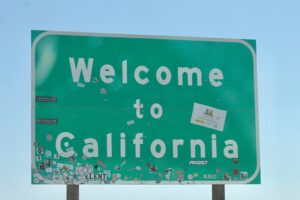May 23, 2016
 This month, the Food and Drug Administration (“FDA”) released a highly anticipated rule chiefly aimed at bringing e-cigs and other nicotine vaporizing technology products within its regulatory purview. For years, the e-cig industry has been allowed to grow and flourish within a legal grey zone as a non-tobacco product. Under intense pressure from consumer and health groups, however, the federal government has now ushered in a seismic shift in the way that e-cigarette companies can manufacture and market their products going forward.
This month, the Food and Drug Administration (“FDA”) released a highly anticipated rule chiefly aimed at bringing e-cigs and other nicotine vaporizing technology products within its regulatory purview. For years, the e-cig industry has been allowed to grow and flourish within a legal grey zone as a non-tobacco product. Under intense pressure from consumer and health groups, however, the federal government has now ushered in a seismic shift in the way that e-cigarette companies can manufacture and market their products going forward.
What are the major takeaways from the FDA regulations on E-Cigs?
- E-cigarettes have now been deemed to be a tobacco product under federal law, and accordingly, the restrictions concerning marketing of tobacco products are anticipated to apply with equal force to e-cig products;
- Unless a product was commercially available for sale on February 15, 2007, e-cig products must apply for and receive FDA approval before the product can be sold;
- Advertisements for e-cig products must contain a required nicotine-related warning;
- If advertisements contain any kind of visual component (such as in webpages and email), the nicotine warning statement must appear in the upper portion of the advertisement, occupy at least 20% of the advertisement and, among other things, appear in black text juxtaposed against a white background (i.e. no colors);
- Audio advertisements must be limited to words only, with no music or sound effects; and
- Video advertisements must be limited to static black text on a white background.
Protecting Your E-Cigarette Business
There is little doubt that the federal government has changed the rules of the road for e-cig companies in both the short and long term. Many businesses in the industry, both in the manufacturing and the marketing sectors, will experience growing pains in the coming months and years as they acclimate to the new regulations and seek to alter their practices to bring themselves into compliance with same. Accordingly, it is essential for any business that currently operates in the space, as well as those hoping to enter the industry as it continues to grow, to engage and work closely with experienced counsel to ensure that licensure and application processes, as well as marketing practices and procedures, are fully compliant with all applicable laws, rules and regulations.
If you are interested in learning more about this topic, need to review your marketing practices and procedures or if you are facing an investigation from a state attorney general or other regulatory agency, please e-mail us at info@kleinmoynihan.com, or call us at (212) 246-0900.
Attorney Advertising
Related Blog Posts:
The World Health Organization’s Take on E-Cigs and FDA Regulations



